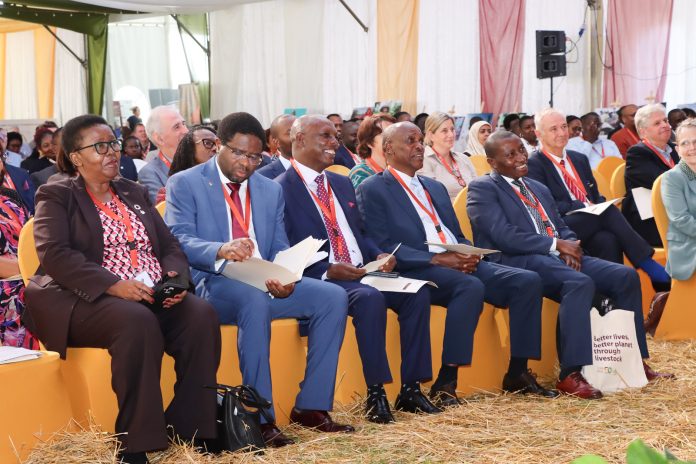The International Livestock Research Institute (ILRI) marked 50 years of pioneering research and collaboration aimed at transforming livestock systems to improve lives and foster a healthier planet. Based in Nairobi, Kenya, ILRI has spent decades spearheading innovative solutions to tackle global challenges such as food insecurity, climate change, and environmental degradation.
The institute’s anniversary celebration was graced by distinguished leaders, including Dr. Andrew Karanja, Cabinet Secretary for the Ministry of Agriculture and Livestock Development, who lauded ILRI’s profound contributions. “Research is at the heart of progress. ILRI’s ability to combine global expertise with local understanding has made it an invaluable asset to Kenya,” Dr. Karanja stated. He highlighted how ILRI’s partnership aligns with Kenya’s Vision 2030, emphasizing the pivotal role of livestock in driving sustainable development and enhancing livelihoods
To guide its next phase of impact, ILRI unveiled its 2024–2030 corporate strategy, “Unlocking Sustainable Livestock’s Potential Through Research for Better Lives and a Better Planet.” This strategy focuses on two interconnected goals: designing and deploying innovative livestock solutions and leveraging scientific evidence to shape policies and investments.
ILRI Director General, Appolinaire Djikeng, emphasized the importance of this renewed direction, stating, “This strategy represents a pivotal step forward, ensuring our research drives significant impacts for millions globally. By focusing on scalable solutions and evidence-based policy influence, we aim to transform food systems and tackle pressing global challenges.”
Dr. Regassa highlighted ILRI’s role in Ethiopia, noting key contributions such as advancements in dairy and poultry genetics, animal health, forages, and nutrition tailored to the Ethiopian context. He also praised ILRI’s impact on rangeland management, the introduction of Index-Based Livestock Insurance, and the co-development of national strategies like the National Dairy Development Strategy and the Poultry Development Strategy.
In Kenya, ILRI has partnered with the Kenya Agricultural and Livestock Research Organization (KALRO) and other stakeholders to drive innovation in key sectors. Notable projects include the Tropical Poultry Genetic Solutions (TPGS) initiative, the African Dairy Genetic Gains (ADGG) program, and the biobanking of Kenyan chicken genetic resources. ILRI’s research extends to improving forages, developing vaccines, and promoting climate-smart livestock systems.
The institute aims to reach over 300 million people globally, addressing key issues like food security, poverty alleviation, and climate resilience. ILRI’s commitment to tailoring solutions to local contexts, strengthening partnerships, and fostering innovation positions it as a vital force in the transformation of livestock systems.

